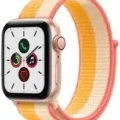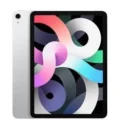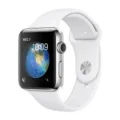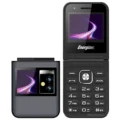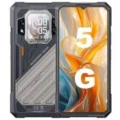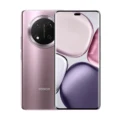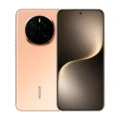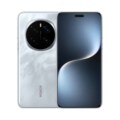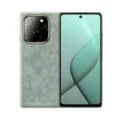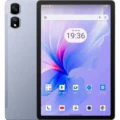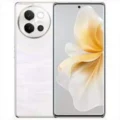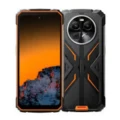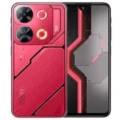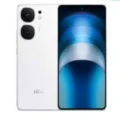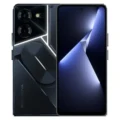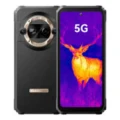Apple iPad Pro 11 (2020)
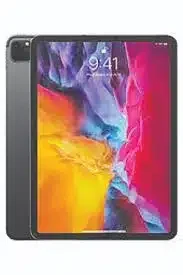

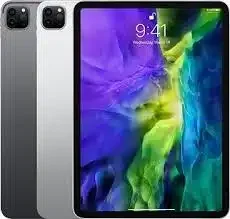
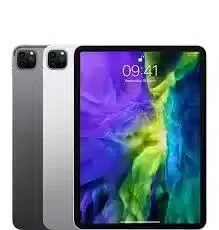
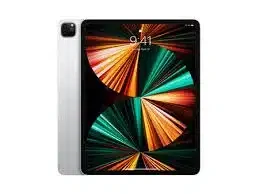
- : 6GB RAM Apple A12Z Bionic
- : 11.0" 1668x2388 pixels
- : Li-Po
- : 12MP 2160p
The Apple iPad Pro 11 (2020) stands as a pinnacle of innovation and performance in the tablet market, seamlessly merging cutting-edge technology with sleek design. This 11-inch iPad Pro introduces a host of features that redefine user experiences and elevate productivity.
At the heart of this device is the powerful A12Z Bionic chip, ensuring lightning-fast performance and smooth multitasking capabilities. The Liquid Retina display with ProMotion technology delivers stunning visuals, showcasing vivid colors and crisp details with a resolution that captivates the eye.
Designed for versatility, the iPad Pro 11 (2020) supports the Apple Pencil 2nd generation and the Magic Keyboard, transforming it into a dynamic canvas for creativity or a portable workstation. The tablet’s camera system is equally impressive, featuring a 12MP Wide camera and 10MP Ultra Wide camera, enabling users to capture stunning photos and 4K video with ease.
In terms of connectivity, the iPad Pro 11 (2020) boasts Wi-Fi 6 and optional 4G LTE support, ensuring fast and reliable internet access on the go. The inclusion of Face ID provides secure and convenient authentication, enhancing the overall user experience.
The tablet runs on iPadOS, offering a seamless and intuitive interface that adapts to the user’s needs. With a storage capacity of up to 1TB, users can store an extensive library of apps, files, and media.
In summary, the Apple iPad Pro 11 (2020) is a powerhouse of performance, featuring a stunning display, advanced camera system, and compatibility with accessories that unlock its full potential. Whether you’re a creative professional, a student, or a business executive, this tablet sets the standard for excellence in the digital realm. Elevate your digital experience with the iPad Pro 11 (2020).
Specs
Network
| 2G Network GSM 850 / 900 / 1800 / 1900 - SIM 1 & SIM 2 (dual-SIM) CDMA 800 / 1900 |
GSM 850 / 900 / 1800 / 1900 CDMA 800 / 1900 |
| 3G Network |
HSDPA 850 / 900 / 1700(AWS) / 1900 / 2100 CDMA2000 1xEV-DO |
| 4G Network | 1, 2, 3, 4, 5, 7, 8, 11, 12, 13, 14, 17, 18, 19, 20, 21, 25, 26, 29, 30, 34, 38, 39, 40, 41, 46, 48, 66, 71 |
| Speed |
HSPA, LTE-A, EV-DO Rev.A 3.1 Mbps |
LAUNCH
| Announced | March, 2026 |
| Status |
Available. Released 2020, March 19 |
BODY
| Dimensions | 247.6 x 178.5 x 5.9 mm (9.75 x 7.03 x 0.23 in) |
| Weight | 471 g (Wi-Fi), 473 g (LTE) (1.04 lb) |
| Build | Glass front, aluminum back, aluminum frame |
| SIMs SIM (Subscriber Identity Module) is a small card that contains mobile network subscriber's account information. This allows the phone using the card to attach to a mobile network. The SIM card is most commonly associated with GSM and UMTS mobile networks. Moving a SIM card from one phone to another allows a subscriber to switch mobile phones without having to contact their mobile network carrier. SIM cards can also be used by a phone to store limited amounts of data, such as phone numbers and text messages. |
Nano-SIM and eSIM Stylus support (Bluetooth integration; magnetic) |
Display
| Display Type Display Technology => A number of display technologies and types used in mobile phones => TFT (Thin Film Transistor), IPS (In-Place Switching), OLED (Organic Light Emitting Diode), AMOLED (Active-Matrix Organic Light-Emitting Diode), Super AMOLED (an even advanced version of AMOLED), Resistive Touchscreen (Resistive touchscreens contain two layer of conductive material with a very small gap between them which acts as a resistance), Capacitive Touchsceen (Capacitive touchscreen technology consists of a layer of glass coated with a transparent conductor) | IPS LCD, 120Hz, 600 nits (typ) |
| Size | 11.0 inches, 366.5 cm2 (~82.9% screen-to-body ratio) |
| Resolution | 1668 x 2388 pixels (~265 ppi density) |
| Protection Display Protection => Gorilla Glass is a special alkali-aluminosilicate glass shield with exceptional damage resistance that helps protect mobile displays from scratches, drops, and bumps of everyday use, It is always better to go for a smartphone with Gorilla Glass for that added protection and peace of mind. | Scratch-resistant glass, oleophobic coating |
PLATFORM
| Operating System OS => Every computer system run on a base software called Operating System (OS). Operating System controls all basic operations of the computer (such as smartphone, PDAs, tablet computers and other handheld devices). The Operating System allows the user to install and run third party applications (apps), apps are used to add new functionality to the device. | iPadOS 13.4, upgradable to iPadOS 17.3 |
| Chipset Chipset is a group of integrated circuits designed to perform one or a more dedicated functions, often with real time computing constraints, Popular smartphones are equipped with more advanced embedded chipsets that can do many different tasks depending on their programming. | Apple A12Z Bionic |
| CPU CPU (Central Processing Unit) mostly known as processors, CPU processes instructions in order to carry out certain functions that make your device operate properly. Processors are often described as the brain of computers, smartphones and tablets, Smartphones and tablets rely on processors to carry out their every task, Processors are an incredibly important factor in selecting any type of computing device, including your smartphone. | Octa-core (4x2.5 GHz Vortex + 4x1.6 GHz Tempest) |
| GPU GPU (Graphics Processing Unit) is a single-chip processor designed to rapidly manipulate and alter memory to accelerate the creation of images in a frame buffer intended for output to a display, This includes things such as lighting effects, object transformations, and 3D motion. | Apple GPU (8-core graphics) |
MEMORY
| Card Slot Memory Card Slot is a special slot for inserting a memory card. Memory cards allow you to expand the phone's built-in memory, A memory card (sometimes called a flash memory card or a storage card) is a small storage medium used to store data such as text, pictures, audio, and video, for use on small, portable or remote computing devices such as mobile phones, mp3 players, digital cameras. | No |
| Internal | 128GB 6GB RAM, 256GB 6GB RAM, 512GB 6GB RAM, 1TB 6GB RAM |
MAIN CAMERA
| Cameras Specs Today’s smartphones come equipped with a very comprehensive set of camera related specifications. Our smartphone, for many of us, has become our primary camera due to it being the one we always have with us. |
12 MP, f/1.8, (wide), 1/3", 1.22µm, dual pixel PDAF 10 MP, f/2.4, 11mm (ultrawide) TOF 3D LiDAR scanner (depth) |
| Video | 4K@24/30/60fps, 1080p@30/60/120/240fps; gyro-EIS |
| Camera Features |
Quad-LED dual-tone flash, HDR |
SELFIE CAMERA
| Cameras Specs Today’s smartphones come equipped with a very comprehensive set of camera related specifications. Our smartphone, for many of us, has become our primary camera due to it being the one we always have with us. |
7 MP, f/2.2 |
| Features |
1080p@30/60fps |
| Video | 1080p@30/60fps |
SOUND
| Loudspeaker | Yes, with stereo speakers (4 speakers) |
| 3.5mm jack | No |
COMMS
| WLAN |
Wi-Fi 802.11 a/b/g/n/ac/6, dual-band, hotspot |
| Positioning |
GPS, GLONASS, GALILEO, QZSS (Wi‑Fi + Cellular model only) |
| Bluetooth Bluetooth is a wireless communications technology for exchanging data between mobile phones, headsets, computers and other network devices over short distances without wires, Bluetooth technology was primarily designed to support simple wireless networking of personal consumer devices. | 5.0, A2DP, LE, EDR |
| Infrared Infrared connectivity is an old wireless technology used to connect two electronic devices. It uses a beam of infrared light to transmit information and so requires direct line of sight and operates only at close range. | |
| USB | USB Type-C 3.1, magnetic connector |
| NFC NFC (Near field communication) is a set of standards for smartphones and similar devices to establish peer-to-peer radio communications with each other by touching them together or bringing them into proximity, usually no more than a few inches. | |
| Radio |
Features
| Sensors Sensors are electronic components that detects and responds to some type of input from the physical environment. The specific input could be light, heat, motion, moisture, pressure and location, The output is generally a signal that is converted to use in computing systems, a location sensor, such as a GPS receiver is able to detect current location of your electronic device. |
Face ID, accelerometer, gyro, proximity, barometer |
BATTERY
| Battery Type Battery Type => Cell phones run on various kinds of batteries depending on the manufacturer, phone size or shape and features. There are basically four types of cell phone batteries => Lithium Polymer, Lithium Ion, Nickel Metal Hydride and Nickel Cadmium. | Li-Poly (Lithium Polymer) |
| Capacity Battery Capacity is a measure (typically in Amp-hr) of the charge stored by the battery, and is determined by the mass of active material contained in the battery. The battery capacity represents the maximum amount of energy that can be extracted from the battery under certain conditions. | 7538 mAh (28.65 Wh |
| Placement | non-removable |
MISC
| Colors |
Silver, Space Gray |
| Model | A2068, A2230, A2228, A2231, iPad8,9, iPad8,10 |
| Price |
About 800 EUR |
TESTS
Reviews
Disclaimer Note
We strive to maintain accurate and up-to-date content on our website for general information purposes only. Please refrain from using the material for business, legal, or any other decisions.


